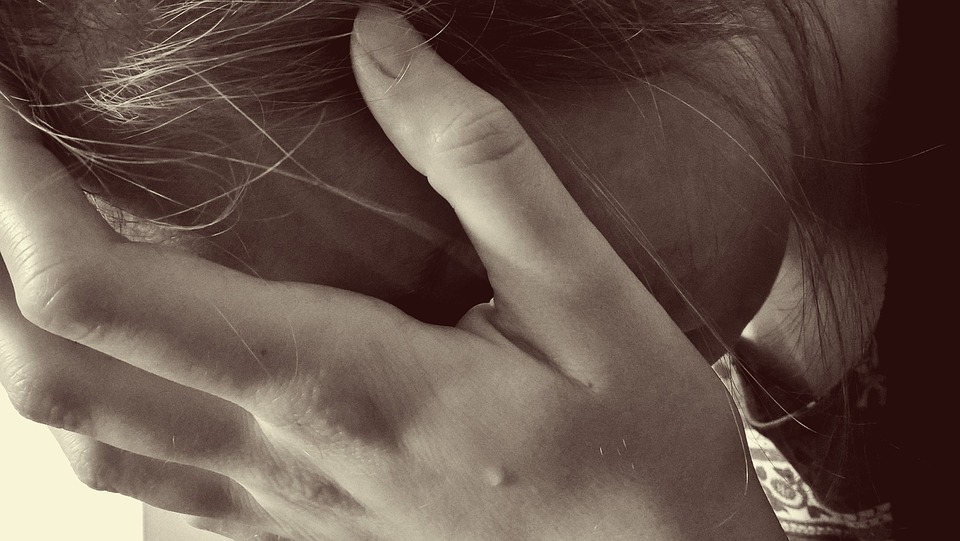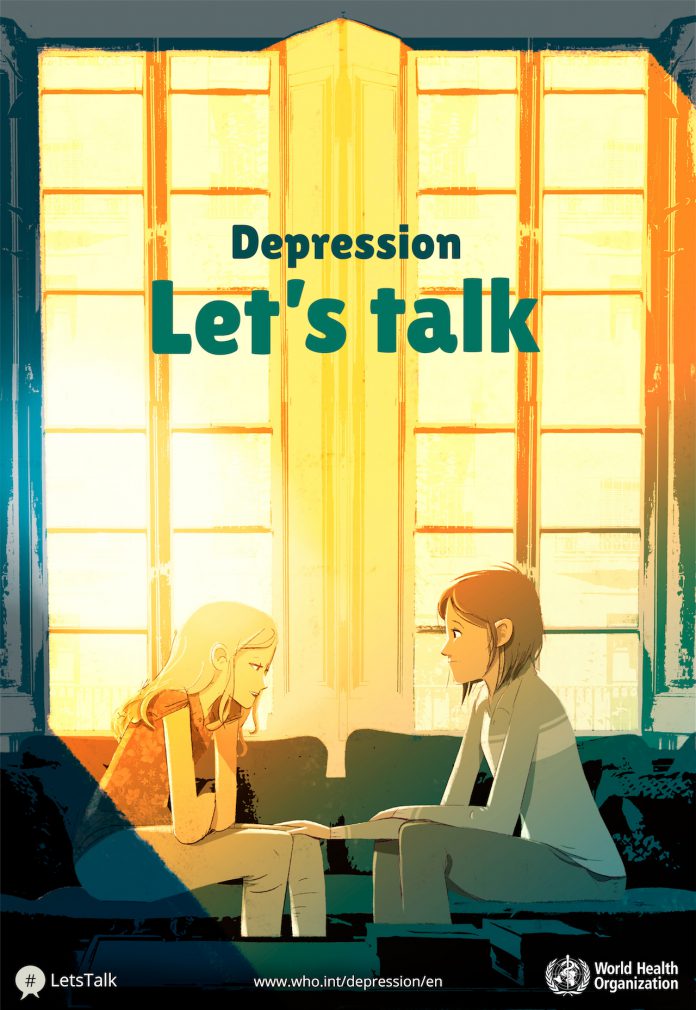This year’s World Health Day focuses on depression. Celebrated April 7 every year to mark the anniversary of the founding of World Health Organisation (WHO), the theme of World Health Day 2017 campaign is “Depression: let’s talk”, with aims to provide better information to the general public about depression, its causes and possible consequences, including suicide, and what help is or can be available for prevention and treatment.
According to the latest WHO estimates, more than 300 million people are now living with depression, an increase of more than 18% between 2005 and 2015. Depression is the leading cause of ill health and disability worldwide. Lack of support for people with mental disorders, coupled with a fear of stigma, prevent many from accessing the treatment they need to live healthy, productive lives.

What is Depression?
Depression is an illness characterised by persistent sadness and a loss of interest in activities that you normally enjoy, accompanied by an inability to carry out daily activities, for at least two weeks.
In addition, people with depression normally have several of the following symptoms:
- a loss of energy;
- a change in appetite;
- sleeping more or less;
- anxiety;
- reduced concentration;
- indecisiveness;
- restlessness;
- feelings of worthlessness, guilt, or hopelessness; and
- thoughts of self-harm or suicide.
Who will get Depression?
Anyone. Depression can affect anyone, regardless of age, sex, or social status.
For this World Health Day 2017, WHO has chosen to pay particular attention to three groups that are disproportionally affected:
- adolescents and young adults;
- women of childbearing age (particularly following childbirth); and
- older adults (over 60s).
What you can do for people who are depressed
- Make it clear that you want to help, listen without judgement, and offer support.
- Find out more about depression.
- Encourage them to seek professional help when available. Offer to accompany them to appointments.
- If medication is prescribed, help them to take it as prescribed. Be patient; it usually takes a few weeks to feel better.
- Help them with everyday tasks and to have regular eating and sleeping patterns.
- Encourage regular exercise and social activities.
- Encourage them to focus on the positive, rather than the negative.
- If they are thinking about self-harm, or have already intentionally harmed themselves, do not leave them alone. Seek further help from the emergency services or a health-care professional. In the meantime, remove items such as medications, sharp objects and firearms.
- Take care of yourself too. Try to find ways to relax and continue doing things you enjoy.
Read also: World Health Day 2016: Beat Diabetes









